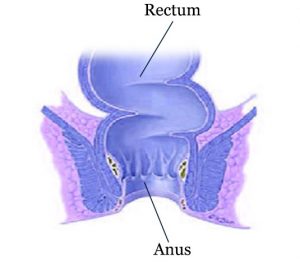What is pruritis ani?
Pruritis ani (anal itching) is a common condition. The itch can be intense and can trigger a strong urge to scratch. The area around the anus can become red, sore, and inflamed.

What causes pruritis ani?
One of the most common causes of anal itching is excessive moisture in the anal area. This can be the result of perspiration, inadequate anal hygiene after bowel motion with residual stool on the skin, or mucus secretion. There are many other causes of anal itching including the following:
- Allergic reactions to certain foods
- Allergies to products used on the skin such as ointment or lotions
- Excessive washing with use of toilet paper with dyes and perfumes
- Inflammatory bowel disease and diarrhea
- Parasitic infections such as pinworm infection
- Proctologic disorders such as Hemorrhoids and Anal Fistula
- Sexually transmitted diseases, warts
- Skin conditions such as psoriasis or skin cancer
- Skin infections related to yeast, bacteria or viruses
How is pruritis ani treated?
Dr. Maher Abbas will examine your anus and assess the cause of your itching. Treatment will be based on the cause of your itching and may include treatment of proctologic conditions, prednisone-based ointment, zinc oxide, or antifungal medications. Most causes are not serious and will often resolve within 2 to 4 weeks.
If the itching persists or if there is suspicion for a more serious condition a skin biopsy or an alternative treatment (medical or surgical) may be necessary. In addition to any prescribed medications, the following measures can be helpful:
- After bowel movement, clean the area gently with water and mild soap. Dry thoroughly by patting the area dry with toilet paper or a towel but avoid vigorous wiping. You can use a hair dryer set on low
- Avoid scratching. You may find some relief by applying a cold compress to the area or taking a lukewarm bath
- Avoid strong soaps that contain fragrance. Do not use scented or colored toilet paper
- Avoid spicy foods, citrus fruit, caffeine [coffee, cola, chocolate], carbonated beverages, milk products, cheese, nuts, tomatoes, and alcohol as they can irritate the anal area and cause itching. Once the itching resolves you can gradually introduce these items one by one
- Avoid constipation and take any prescribed medication. Increase fiber intake [see sections on High Fiber Food and Fiber Supplements]
- Keep a food diary of what you eat. Certain foods may irritate your anal area after a bowel movement
- Place a dry cotton ball against the anus to absorb the moisture
- Products that contain alcohol (genital deodorant or wipes) should be avoided
- Wear cotton underwear. Avoid pantyhose or other tight clothes
Why is it important to seek expert care with a board certified proctologist and colorectal surgeon?
The anal area is a delicate part of the body. It is important to seek expert care in order to have the correct diagnosis and get the proper treatment for your condition. While pruritis ani is diagnosed based on the history given by the patient and the office-based physical examination (visual inspection, Anoscopy or Proctoscopy to look inside the anus and rectum), some patients may require additional tests.

Dr. Maher Abbas is an expert in the treatment of diseases of the colon, rectum and anus. With over a 30-year career in the USA, he has completed advanced surgical training and is American Board Certified in Colon and Rectal Surgery. Dr. Maher Abbas is a Fellow of the American Society of Colon and Rectal Surgeons.
If you would like to schedule a consultation with Dr. Maher Abbas to discuss your case, click here.



